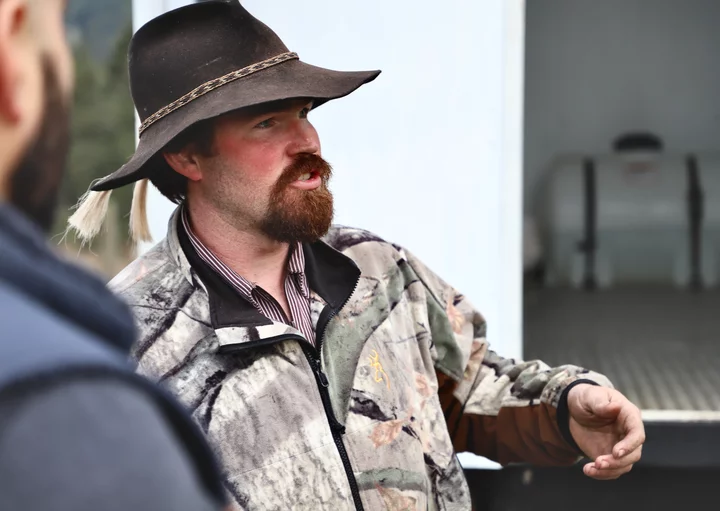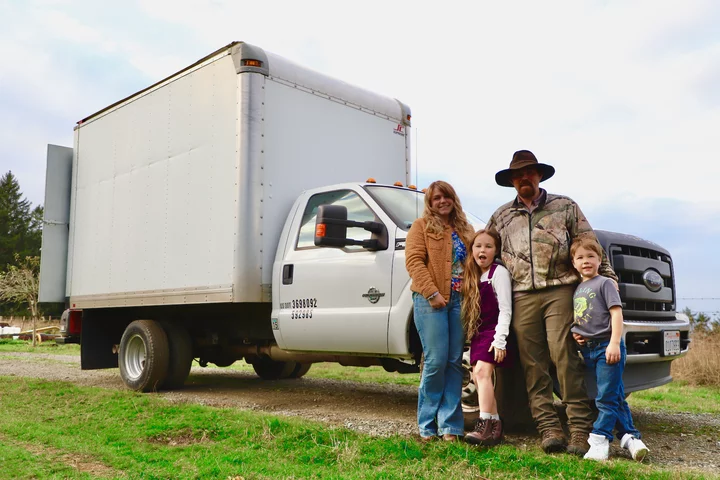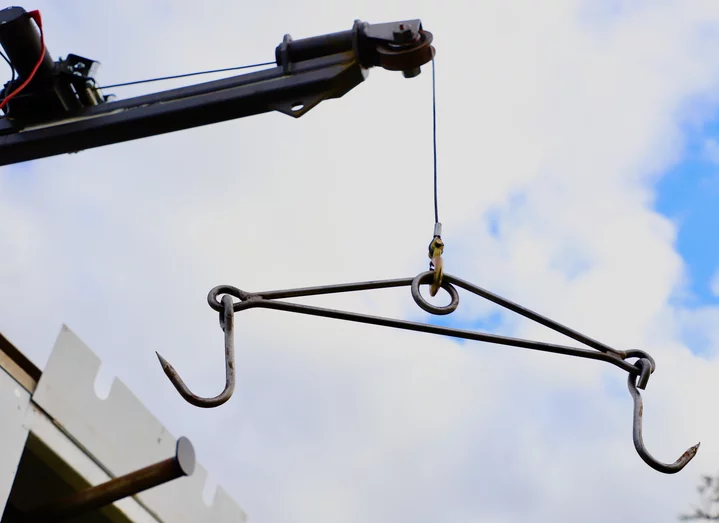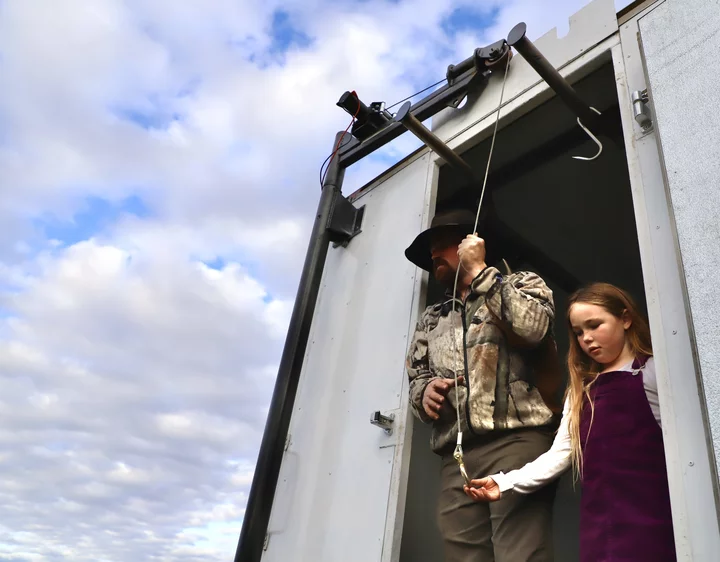Photos: Andrew Goff.
Every year at the Humboldt County Fair you joke about bidding on one of those farm animals raised by a child. Every year you think about splitting the cost with a bunch of your friends and getting the whole animal butchered. You dream about having local, organic meat at your table and the rest tucked away in your freezer.
That dream is a lot closer than you think.
Farmers usually transport livestock to a facility approved by the USDA for processing before it can be sold. With Mobile Slaughter Operators (MSOs), farmers can sell the living animal first and then have it slaughtered and butchered. Here’s how it works: You purchase an animal locally, pay the rancher to care for the animal and collect the meat after the animal is harvested.
Back in 2020, California Governor Gavin Newsom signed AB 888 – Mobile slaughter operations: livestock into law, allowing cattle, goats, sheep and swine to be slaughtered on the ranch where they were raised. With the rising interest in how and where meat is produced, demand also went up for local slaughtering. This is where MSOs step in.
Meet Clyde Dalton, licensed to kill.
Dalton, age 30, owner and operator of the Lost Coast Mobile Slaughter Service, brings his truck out to farms and slaughters your animal. If you are worried about sanitation or the humane aspect of slaughter, Dalton follows guidelines provided by USDA and the California Department of Food and Agriculture (CDFA). Every year he pays a licensing fee to be a livestock meat inspector with the CDFA and completes a training program provided by the Meat, Poultry and Egg Safety Branch of the department.
Stepping away from the bureaucracy of an LLC, Dalton operates on knowledge and practice. Born in Fortuna but raised in Carlotta, he has been raising animals as well as slaughtering them since he was a kid.
“I was probably around six years old and I got used to the process,” Dalton told the Outpost on a recent tour of his operations. “I remember being interested in where our food comes from.”
The Lost Coast Mobile Slaughter Service has been in operation for roughly a month, and most business is coming from local small farms. He has not been able to operate within city limits because of his primary tool for slaughter — his gun. Using a firearm within city limits is prohibited in most scenarios, and that includes the killing of livestock.
“I’m hoping to get a bolt gun in the future so that I can adjust and possibly do work within city limits,” Dalton said.
To be clear, he does not butcher livestock. He simply slaughters. He charges a flat fee depending on the animal, but is learning to pivot as things change.
Just recently he slaughtered a massive bull weighing somewhere around 2,200 pounds. It took him three hours to kill, skin and clean. He also cleared out its innards and left the head for the owners to deal with. As part of the category he operates in, Dalton is technically not allowed to keep, dispose of or process any of these parts.
“Once I have the animal ready I leave all that for the owner,” Dalton said. “I take the carcass to the butcher shop and that’s it.”
In the same week that he slaughtered the massive bull, he took care of two pigs and two sheep over the course of three days. It is tough and honest labor.
“Somebody’s gotta do it,” Dalton said. “And I don’t mind it because I grew up hunting.”
The main reason Dalton is even able to run a business like this is because of his truck, which was custom-built by Dalton himself over the course of six months. There are three major components that aren’t inherently part of the truck. There’s the welded pillar that can swivel so that Dalton can hook up a carcass and lift it from the ground. There are the tracks inside, used to hang the carcasses for storage and travel. And there are the chains to keep the hooked carcasses from sliding back and forth on the tracks.
He welded every necessary piece, installed easy-to-clean flooring, bolted down a large container for water used to spray the inside of the truck and the carcasses clean.
His truck is not perfect, but it is an impressive start. He solves his problems as he goes and keeps in mind potential issues. Things like driving out into muddy areas on farmland can be difficult for keeping the truck and carcasses clean.
“I’m already thinking about having to slaughter an animal on a hill,” Dalton said. “Those areas can be tough because if I lift the animal here, the weight of it might swing it away from the entrance.”
It is important that his truck is so custom. Unlike cement trucks, you cannot just go out and buy a slaughtering truck. Such a thing hardly exists.
There have been attempts at making them commercially available. These have names like “Mobile Slaughter Units” or “Meat Harvest Units.” One I could find is strictly limited for poultry, known as a Poultry Processing Unit, and it costs $150,000. It is not really something a farmer, much less the average person, could afford.
All of this started because Dalton likes being outside every day. He is a skilled handyman: he welds, does fencework, builds kennels, paints houses, helps with his in-law’s firewood business, and just about anything that keeps him busy. On top of all the work, he is raising his two kids alongside his wife Aryn.
All of them are self-proclaimed animal lovers, and they have a whole pack of dogs that run on their property with their young cow.
“My little girl tells me she doesn’t want me to slaughter our cow.” Dalton said. “I’m not sure I ever will.”
Dalton believes that the slaughtering of an animal affects the quality of the meat. Considering the stress of it all, he tries to slaughter as quickly and humanely as possible.
“Some farmers have these animals like they are pets,” Dalton said. “Sometimes it’s hard for them to kill the animals themselves. It can be sentimental.”
Dalton has goals to expand and even adapt in some areas but since he just started, his main focus is letting us know that he has time to kill.




CLICK TO MANAGE